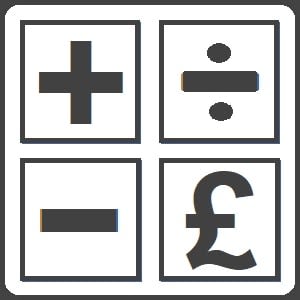IR35 Guide: What UK Businesses & Contractors Need to Know

Understanding IR35 - What UK Businesses & Contractors Need to Know
IR35, the "off-payroll working rules," have created a huge impact on how contractors and companies operate in the UK.
Originally designed to prevent tax avoidance through "disguised employment" (contractors working like employees but paying less tax), the IR35 reforms have shifted responsibility for determining employment status from the contractor to the hiring company — particularly for public sector and medium/large private sector businesses.
What is IR35?
IR35 is a set of tax rules designed to catch people who look like employees but work through as a business (usually in the form of business, individual business, contractor or in the form of personal service company). It governs the situation which exists mainly to pay less tax and National Insurance as its purpose. Put simply — if you work like an employee, HMRC wants you to pay tax like one — even if you invoice through a company.
Who Should Be Concerned About IR35?
IR35 rules concern individuals who provide their services to clients through an intermediary, rather than being hired directly as employees. This intermediary is often in the form of a business structure — such as a limited company, partnership, or another service company arrangement — set up to contract with clients. It is particularly relevant where the individual is essentially working like an employee of the client but operating through their own business to gain tax advantages.
Genuinely self-employed individuals, like freelancers, contractors, service providers working directly for clients may not be covered by IR35. However, they are still subject to general employment status tests, and HMRC may challenge their status if the working arrangement resembles employment. In practice, IR35 is a key issue for those running their own company or business entity to provide personal services, especially where there is a long-term relationship with one client and the individual works under their control.
How Does HMRC Decide If You Fall Inside IR35?
When assessing whether IR35 applies, HMRC will not rely solely on the written contract but will look closely at the actual working relationship between the individual and the client. Key factors include whether the client controls how, when, and where the work is done, and whether the individual has the genuine right to send someone else (a substitute) to carry out the work. HMRC will also consider if there is mutual obligation — meaning the client is expected to provide ongoing work and the worker is expected to accept it — as well as whether the individual bears any financial risk typical of running a business, such as investing in equipment or being responsible for correcting mistakes at their own cost. Another important consideration is whether the individual works as part of the client’s team, following internal policies and procedures, which may suggest they are effectively integrated like an employee.
The responsibility for determining whether IR35 applies depends on the size and type of the client. If the individual provides services to a small private company, they are responsible for assessing their own status and ensuring the correct tax treatment. However, if the work is for a public sector body or a medium or large private company, the client must carry out the status assessment and issue a Status Determination Statement (SDS). Where IR35 applies, tax and National Insurance will usually be deducted at source, much like an employee’s pay. Given the complexity of these rules and the range of factors involved, it is often advisable to seek professional guidance to avoid unexpected tax liabilities.
What Happens If You're Inside IR35?
If caught by IR35, the tax consequences are serious:
- Pay tax and NIC as they were due for all times under the IR35 arrangement
- Lose ability to take dividends from service company for that contract
- HMRC can issue backdated tax bills, interest, and penalties
- Severe cases can lead to HMRC accusing you of tax avoidance or deliberate non-compliance
Why Is IR35 So Complicated?
It’s not black-and-white. We are not surprised if you would struggle to apply IR35 rules correctly. That's why HMRC built tool for assessment, but the tool has been criticised for being overly strict. In fact, IR35 disputes often end up in tax tribunals and court cases because every working relationship is different.
HMRC would even hire external consultants to assess complicated IR35 cases to ensure they have solid ground in tribunal and court cases, which tells you how complex these rules are.
What Should Contractors & Businesses Do?
Review All Contracts Carefully
The written contract is important, but HMRC will also look at how you actually work day-to-day.
Avoid "Disguised Employment"
If you work like a full-time employee for a client (but invoice them through your company), you're at risk.
Seek Professional Advice
IR35 is one of the most complicated areas of UK tax. If you're unsure about your IR35 position, or you're a business hiring contractors, speak to us for clear, practical advice — and peace of mind.
Every IR35 situation is unique. The consequences of getting it wrong can be expensive.
As UK accountants with expertise in contractor tax issues, our tax experts at Elaga Accountancy strongly recommend a professional IR35 review of your working arrangements and contracts.
#IR35 #IR35Rules #UKTax #ContractorTax #OffPayrollWorking #UKAccountants #TaxAdviceUK #HMRC #SelfEmployedUK #LimitedCompanyTax #UKContractors #TaxCompliance #PersonalServiceCompany #FreelancersUK #SmallBusinessTax #UKTaxBlog
Contact Us
Send a Message
Get in touch to discuss with us how we can best assist you.
